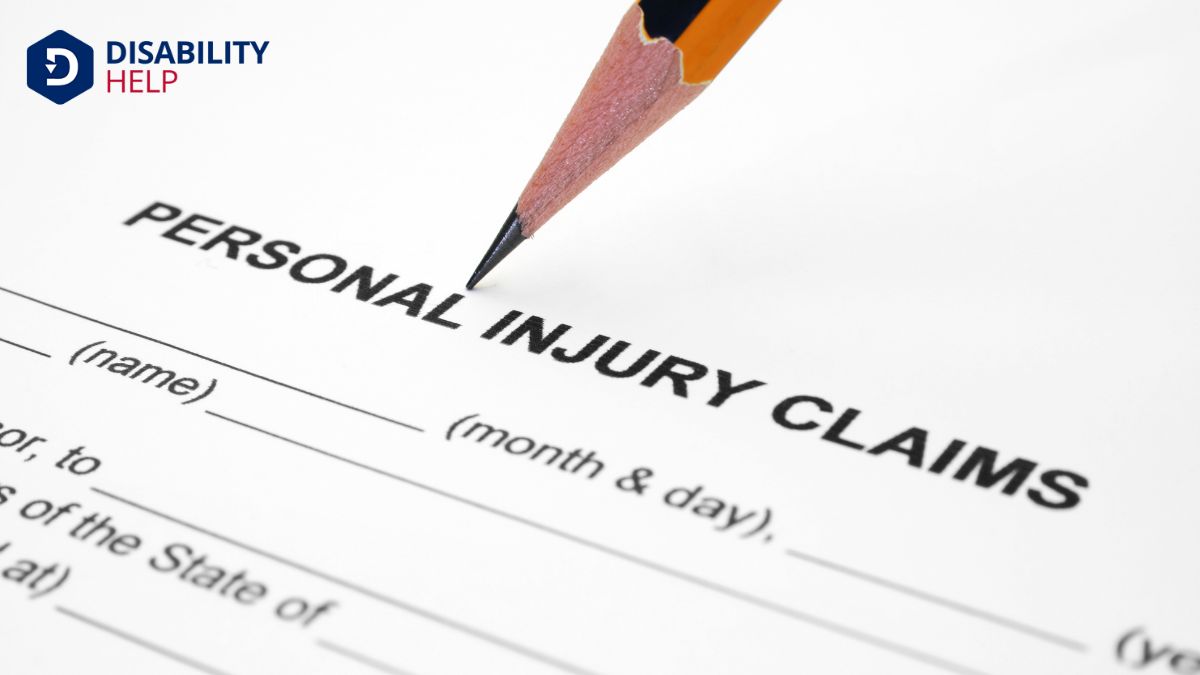Let's explore the fascinating world of subrogation in personal injury claims together. When we hear about insurance companies seeking reimbursement after paying medical expenses, it often leaves us with more questions than answers. How does this process impact our settlements, and what are our rights and responsibilities? Understanding subrogation is essential for safeguarding our financial interests, so let's uncover its complexities and learn strategies to navigate this intricate process effectively.
Key Takeaways
- Subrogation allows insurers to recover costs from third parties after covering the insured's personal injury expenses.
- It prevents double payment for damages and helps keep insurance premiums manageable.
- Subrogation can reduce the final settlement amounts received by the injured party.
- Legal guidance is crucial for navigating subrogation complexities and ensuring fair settlement outcomes.
- Reviewing insurance policies helps individuals understand their subrogation rights and avoid unexpected claim issues.
Understanding the Basics of Subrogation

When we explore the concept of subrogation, it might initially seem complex, but let's break it down together.
Subrogation is when an insurance company steps into our shoes to recover costs from a third party responsible for damages. Imagine our insurance pays for our medical expenses after an accident. Later, they can seek reimbursement from the party at fault. This process helps keep premiums in check as insurers recoup their losses.
We might wonder why it's important. Well, subrogation guarantees we're not paying twice—once through premiums and again due to someone else's negligenceA legal concept where a party fails to exercise reasonable care, resulting in harm to another person....
How Subrogation Works in Personal Injury Cases
Now that we've grasped the basics of subrogation, let's see how it plays out in personal injury cases. When we're injured and use our insurance to cover medical expenses, our insurer might seek reimbursement from the at-fault party. This process is subrogation.
We'll likely receive compensation for our damages, but because our insurer paid some upfront costs, they have the right to recover those amounts. It's vital for us to understand that subrogation can affect the final settlement we receive.
As the injured party, we should make certain that both our interests and the insurer's interests align. This means communicating with our attorney and insurance provider.
The Role of Insurance Companies in Subrogation
While managing personal injury claims, we might find ourselves dealing closely with insurance companies, as they play a significant role in the subrogation process. When an insurer pays out a claim on our behalf, they may seek reimbursement from the party responsible for the injury. This process helps guarantee that the financial burden doesn’t fall unfairly on us or the insurer.
Insurance companies have the resources and expertise to pursue subrogation claims effectively. They’ll communicate with other parties, gather necessary documentation, and negotiate settlements.
It's essential for us to cooperate with our insurer during this process, providing any required information to support the case. Understanding the insurer's role can help us navigate subrogation more smoothly, safeguarding that our rights and interests are protected.
Potential Impact on Your Personal Injury Settlement
Steering subrogation in personal injury claims can substantially affect the settlement we obtain. When our insurance company exercises subrogation, it seeks reimbursement for expenses it's covered on our behalf. This action can reduce the amount we ultimately take home from a settlement.
However, comprehending and managing subrogation can mitigate its impact on us. Being proactive about communication is vital. By discussing subrogation early with our legal counsel, we can identify potential reductions and plan accordingly.
Sometimes, negotiating with insurance companies can result in a more favorable outcome, allowing us to retain a larger portion of our settlement. It’s essential to stay informed and engaged throughout the process, ensuring that our financial interests are protected and that we grasp every step.
Legal Rights and Responsibilities in Subrogation
Understanding our legal rights and responsibilities in subrogation is vital as it directly influences how we navigate our personal injury claims. When an insurance company pays for our medical expenses, they might have the right to recover that money from any settlement we receive. This process is known as subrogation.
We must recognize that our insurance provider has a legitimate interest in our case outcomes, ensuring they recover their costs. However, we're also entitled to retain a portion of the settlement for our damages and pain.
It's important we review our insurance policy's subrogation clause to know our obligations. By understanding these elements, we can effectively communicate with our insurance companies and protect our interests while complying with their rights.
Strategies to Manage Subrogation Claims
Let's explore how we can effectively manage subrogation claims by first understanding our subrogation rights.
By negotiating claim settlements wisely, we can guarantee that we're not leaving any money on the table.
Ultimately, prioritizing our financial recovery will help us make the most of our personal injury claims.
Understanding Subrogation Rights
While subrogation might seem like a complex legal term, it's vital that we grasp its impact on personal injury claims. Subrogation rights allow insurance companies to recoup expenses they’ve covered for us by pursuing compensation from the responsible party.
To effectively manage these claims, we should understand the following:
- Review Insurance Policies: We must carefully examine our policies to know what subrogation rights our insurer holds.
- Stay Informed: Being proactive and aware of subrogation claims guarantees we aren’t caught off guard.
- Document Everything: Keeping detailed records of all related expenses and communications can strengthen our case.
- Seek Legal Advice: Consulting with an attorney can help us navigate complex subrogation rights and protect our interests.
Understanding these aspects empowers us in managing subrogation claims.
Negotiating Claim Settlements
When negotiating claim settlements, especially regarding subrogation claims, we must strategically balance our interests with those of the insurance company.
It’s vital we comprehend their perspective and the value they place on recovering their payouts. We should start by gathering all relevant documentation, clearly outlining the extent of damages and expenses. By presenting a well-organized case, we strengthen our position.
Open communication is key; let’s discuss our goals while considering the insurer’s subrogation rights. We can propose compromises, like agreeing on a reduced reimbursement.
Evaluating the insurer’s willingness to negotiate could lead to a more favorable outcome. Remember, grasping their subrogation priorities allows us to craft a settlement strategy that aligns with our best interests.
Prioritizing Financial Recovery
As we focus on prioritizing financial recovery in subrogation claims, understanding and implementing effective strategies becomes vital.
Let’s explore some practical steps to manage these claims efficiently:
- Identify the Claim: We need to promptly identify potential subrogation claims. Early identification helps in gathering necessary documentation and information.
- Communicate with Insurers: Let’s maintain open lines of communication with insurance providers. This guarantees everyone’s on the same page and helps in preventing disputes.
- Negotiate Assertively: We should negotiate assertively yet fairly. Understanding our rights and responsibilities can lead to favorable outcomes.
- Engage Legal Assistance: Sometimes, professional help is essential. Consulting a legal expert can guide us in maneuvering through complex subrogation processes.
Common Challenges in Subrogation Processes
Maneuvering the subrogation process in personal injury claims isn't without its hurdles. We often find ourselves facing complex challenges that can delay or even derail our efforts.
The first challenge is dealing with multiple parties, each with their own interests and agendas. It's essential to maintain clear communication to guarantee everyone is aligned.
Another common issue is the ambiguity in policy language. We need to interpret these terms accurately to avoid misunderstandings.
Additionally, establishing liability can sometimes be tricky, requiring careful examination of the facts and evidence.
Finally, negotiating settlements can be tough, especially when parties are reluctant to compromise. We must remain patient and persistent, ensuring our strategy is both fair and effective for a successful resolution.
The Importance of Legal Guidance in Subrogation Matters

As we navigate the complexities of subrogation in personal injury claims, legal guidance becomes essential.
It guarantees we comprehend the intricate legalities and helps secure fair compensation for all parties involved.
With expert advice, we can confidently manage these challenging processes and protect our interests.
Navigating Complex Legalities
Why is it so essential to have legal guidance when dealing with subrogation in personal injury claims? Maneuvering through these complex legalities can be intimidating without expert help.
Subrogation involves intricate legal principles and multiple parties, and without proper guidance, we might overlook critical aspects. Here’s why legal expertise matters:
- Understanding Rights and Obligations: Lawyers help us grasp our rights and obligations, guaranteeing we’re not at a disadvantage.
- Handling Complex Negotiations: They can skillfully negotiate with insurance companies, maximizing potential recovery.
- Avoiding Costly Mistakes: Legal professionals make sure that procedural and substantive errors, which could jeopardize our claim, are avoided.
- Interpreting Legal Documents: Experts decipher complex legal language, ensuring we comprehend every detail of the agreements we enter into.
Legal guidance simplifies this challenging process.
Ensuring Fair Compensation
Maneuvering the complexities of legal processes requires more than just understanding procedures; it demands a focus on guaranteeing fair compensation. When we're faced with subrogation in personal injury claims, having skilled legal guidance is essential.
Subrogation can be intimidating, with insurance companies often seeking reimbursement from settlements. Our goal should be to retain what's rightfully ours while honoring our obligations.
Navigating these waters without expert advice may lead to under-compensation. Legal professionals not only clarify our rights but also negotiate on our behalf to guarantee we receive a fair outcome.
They understand the nuances that we might overlook, guaranteeing that our compensation isn't unduly reduced. Let's prioritize securing the right guidance to protect our interests and achieve the compensation we deserve.
Conclusion
In maneuvering subrogation in personal injury claims, we must remember the role of insurance companies and the potential impact on our settlements. It's essential that we comprehend our legal rights and responsibilities while managing subrogation claims to safeguard our financial interests. Challenges may arise, but with strategic planning and legal guidance, we can maximize our recovery. Let’s stay informed and proactive to guarantee that we’re not left vulnerable in the subrogation process.






